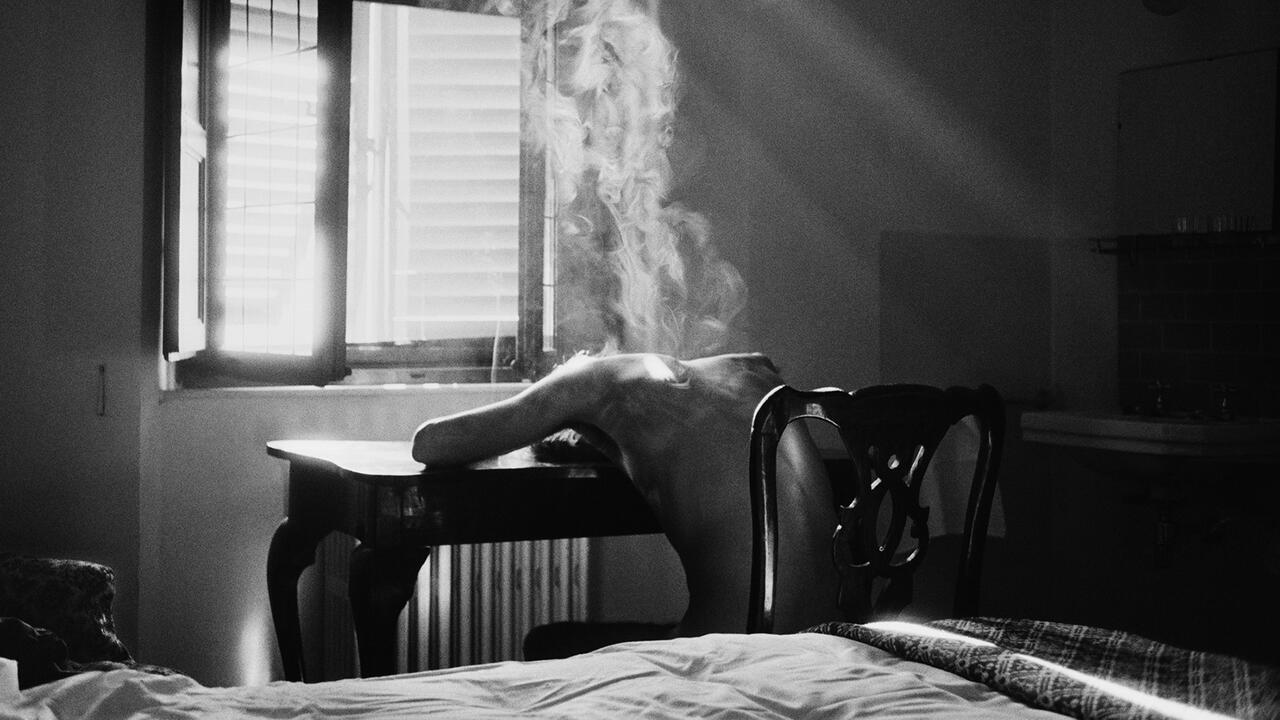Jeremy O. Harris’s Earth-Scorching New Play Arrives on Broadway
As the playwright’s ‘Slave Play’ reaches a wider audience, Jameson Fitzpatrick looks at his work so far
As the playwright’s ‘Slave Play’ reaches a wider audience, Jameson Fitzpatrick looks at his work so far

All three (yes, three) of Jeremy O. Harris's works produced last season share a canny interest in how identity and power shift according to – and across – time, place and relationship. These fraught modulations get enacted most explicitly in Slave Play (2018), directed by Robert O’Hara and currently in its Broadway run at the Golden Theatre. When it premiered at the New York Theatre Workshop last year, the play was met with both acclaim and controversy. The first act comprises a disturbing – and, if we are to trust the audience’s tentative laughter, uncomfortably funny – series of vignettes of three cross-racial sexual pairings, two straight and one gay, on a Southern plantation. The group therapy session in the second act reframes what we have just watched as ‘Antebellum Sexual Performance Therapy’, designed to help reignite the black participants’ desire for their non-black partners. The distinctly contemporary dialogue in this scene is both heady and hilarious, as the couples argue about sex, blackness, whiteness and the position of non-black people of colour. The third act, which offers an intimate view of the first couple we encounter, tenders yet another twist: it isn’t funny at all.

The theme of role play recurs in ‘Daddy’: A Melodrama (2019). Directed by Danya Taymor at the Pershing Square Signature Center this spring, the play centres, emotionally, on Franklin, a young black artist preparing his first solo show, and, physically, around the David Hockney-inspired swimming pool belonging to his older white lover-cum-patron, Andre. Though Andre’s desire for Franklin is undoubtedly objectifying (he calls him ‘my little Naomi’; references to chocolate abound), this is not a straightforward tale of an ingénu caught in the grips of a predator. When Franklin’s friends (caricatures of Los Angeles hipsters who deepen in surprising ways) see his new digs, they think he’s hit the jackpot. And when Franklin’s devout mother, Zora, comes to town for his opening and Andre insists that she, too, take up residence in his Bel Air manse, her love for her son is revealed to be troubled in its own way.

Notably, both Slave Play and ‘Daddy’ premiered while Harris was still an MFA student in playwriting at the Yale School of Drama. His experiences there became the subject of YELL: a ‘documentary’ of my time here (2019). (Spoiler: he did not love it.) Staged at Yale’s Iseman Theater in May as Harris’s thesis production and directed by Jecamiah M. Ybañez, YELL abandons traditional plot and character in favour of a diverse student chorus, whose members switch roles throughout, sometimes across race and gender lines. The play’s unifying element? Every instance of the word ‘Yale’ is replaced by the speaker yelling. (There’s also a shit-eating motif, rendered with spectacularly realistic detail.) It’s an earth-scorching play, staunchly anti-authority, yet suffused with respect for alternative traditions: the use of video and re-enactment nod towards the avant-garde Wooster Group theatre company and, throughout, Harris’s script appropriates and reworks meme culture.

Respect might be the true characteristic twist of Harris’s emerging oeuvre. Though he has often been labelled a provocateur – and his writing does indeed seek to unsettle – it is apparent that Harris cares deeply not only about his material, but also his audiences, particularly those members directly touched by the realities he represents on stage. Notices posted in the lobby for Slave Play announced the presence of support staff available for viewers who needed someone to talk to afterwards. At ‘Daddy’, the seats in the front row were equipped with large, soft towels to protect those sitting in the pool’s ‘splash zone’. And in YELL, while the tension during some particularly pointed moments was palpable, so was the collective relief of the students. The play may have referred to itself as a ‘diss track’, but it was also a cry – of pain, and of solidarity.
‘Slave Play’ is in previews at the John Golden Theatre, New York, USA, from 10 September to 5 October 2019. It opens on 6 October 2019.
Main image: Sullivan Jones and Annie McNamara in Slave Play, by Jeremy O. Harris, directed by Robert O’Hara, 2018. Courtesy: New York Theatre Workshop; photograph: Joan Marcus
This article appeared in frieze issue 206 with the headline ‘Getting It Twisted’.























